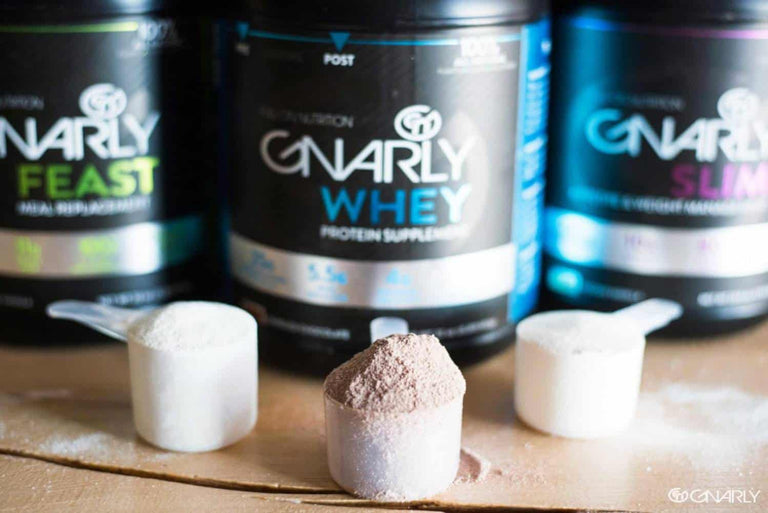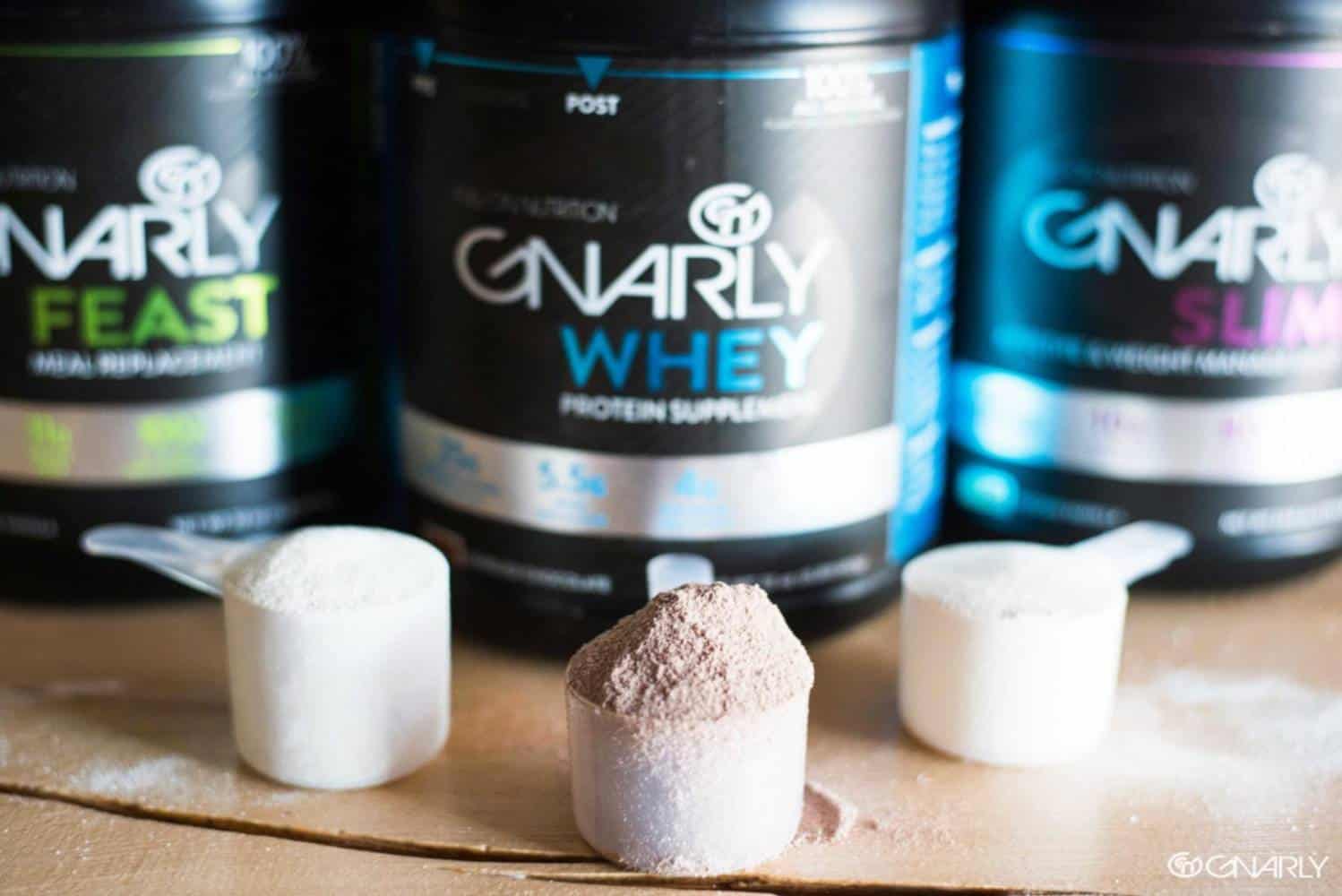There’s kind of an interesting phenomenon that goes on when someone decides to lose weight – or just generally start working on their health: They start chugging whey protein. Seemingly built into our social consciousness is the idea that, for any number of reasons, whey is good for us.
Relatively few people, however, can actually explain why whey is beneficial. What exactly is whey? And what does it do for you that makes it so very valuable? Let’s take a look at some of the lesser-known whey protein benefits that science has revealed.
What’s In Your Whey?
As you may already be aware, whey is a protein source derived from milk. Specifically, it is created during the cheese making process, and, for a long time, was actually a troublesome byproduct for the hard working cheese makers of the world. When milk is heated, it divides into a liquid and a solid portion. The solids are skimmed off the top and become cheese – or casein protein, as the case may be.
The liquid portion left behind, however, is the nutrient-dense whey. After being dried and powdered, the whey you know and love is born.
Despite it’s fairly humble origins, though, whey is a nutritional powerhouse. Of course, there’s the protein. What makes the protein in whey particularly valuable, however is that it’s a “complete” protein – meaning that it contains high levels of the 9 amino acids that the human body is incapable of making on its own. In particular, whey is high in a unique group of amino acids called Branched Chain Amino Acids – or BCAAs. We’ll get into these a little more later on when we really delve into the list of whey protein benefits. For now, though, know that they are very important.
But whey is so much more than just protein. Whey is also rich in healthy fats and a series of highly valuable fractions – all of which are in higher concentrations in grass-fed whey. Again we’ll talk more about this in the section on whey protein powder benefits, but it’s important for you to understand that whey has more to offer than just the titular macronutrient that gets so much attention.
At this point, the powdered form of whey is what the industry calls “whey protein concentrate.” Further processing will remove the majority of the fats and sugars, raising the overall percentage of protein contained in the supplement. The resulting product is called whey protein isolate. And, while isolate does have more protein, it is lacking many other nutrients that can benefit your body in a huge variety of ways.
In your journey through the wilderness of supplement stores, you may have also encountered whey protein hydrolysate. Essentially, these products are partially digested so that your body has less work to do. The idea is that this allows for the protein to get to work faster. Again, however, this means that several other beneficial nutrients have been sacrificed in order to improve the protein numbers. As we’ll see later on, the full range whey protein powder benefits may mean that this is not the best decision.
The Good Stuff
Okay, now that that basic information is out of the way – and we’ve given a few sneak peaks into the benefits whey could be offering – let’s really talk about why whey is so stinkin’ good for you. Frankly, the list is huge and, as you’ll see, there is plenty of solid science to back up the regular use of a quality, grass-fed whey protein.
Improve immune function – Whey contains two compounds, lactalbumin and lactoglobulin, which have a powerful impact on the human immune system. Specifically, these proteins have been shown in laboratory studies to increase the function of a group of white blood cells called neutrophils. When your body first detects any sort of infection, neutrophils are among the first cells to respond – literally eating the invaders and releasing enzymes that kill them. In addition, whey contains lactoferrin, glycomacropeptide, and immunoglobulins – all of which have been shown to support immune function in a variety of ways. Whey is so effective at improving immune function that it has been studied and shown potential in the treatment of HIV, cancer and several other conditions. It’s important to note at this point that several of these components are bonded with the fat in whey and are, therefore, removed when the fat is processed out.
Antioxidants – Closely connected to whey’s ability to enhance immune function, is the capacity it has to increase levels of a highly beneficial antioxidant called glutathione. Sometimes called “the mother of all antioxidants” glutathione, plays a key role in the use, and reuse of many other antioxidants. As your body performs countless chemical reactions every day, some unstable molecules are created as byproducts. In an effort to stabilize themselves, these free radicals try to steal electrons from other molecules, thus creating more free radicals and spreading havoc through your cells. Antioxidants fight this activity. And glutathione powers a large portion of these antioxidants. The problem is that you cannot ingest glutathione – only the raw materials that your body needs to create it, cysteine, glycine, and glutamine. But just because you take in these amino acids, it does not mean that your body will use them to make glutathione. They may be needed elsewhere, however, whey has been shown to effectively increase your body’s glutathione levels.
Reduced Risk of Diabetes – Whey has been shown to reduce the risk of diabetes – as well as help treat type II diabetes – on two fronts. For one thing, any high quality protein will slow your body’s absorption of carbohydrates, reducing the impact of insulin on your system. One study found that 18g of whey protein powder added to a sugary drink actually reduced the amount of glucose that the subject was exposed to by an impressive 56 percent.
Improved Cardiovascular Health – Whey protein has also been shown to improve several markers of cardiovascular health. One study found that, when consumed with a meal, whey produce a smaller spike in a chemical called CCL5 – a marker for atherosclerosis, suggesting that whey may help to prevent this hardening of the arteries. Another study found that whey supplementation helped to increase levels of HDL (“good”) cholesterol, while reducing levels of LDL (“bad”) cholesterol. It’s important to point out that these benefits were most noticeable when whey was used in combination with weight training.
Improved Workout Recovery – Your muscles are, quite literally, made of protein. And, when you exercise, those muscle fibers are damaged. In response, your body decides that those fibers need to be repaired and rebuilt so that the next workout doesn’t do as much damage. But, in order to accomplish this work, the raw materials need to be present. If your body does not have what it needs to fix the damage and you continue to workout, you could actually be doing more harm then good – leading to burnout and injury. Whey, however, makes sure that your body has absolutely everything it needs to get the job done. Numerous studies have found that taking whey protein allows your body to quickly and efficiently recover from your time in the gym, therefore making those workouts more effective. Interestingly, whey tends to absorb faster than other protein sources, making it even more useful for a quick post-workout snack.
Weight Loss – Here’s something a lot of people don’t always think about when it come to losing weight: muscle burns body fat. Well, technically, muscle burns calories – but body fat is just a stored form of excess calories. So, by increasing your muscle fibers, whey can help to improve your metabolism and keeping you burning excess fat even when you aren’t exercising. But protein has also been shown to increase your feelings of fullness – helping you to eat less while not feeling like you’re starving yourself. A huge analysis of 14 studies including 626 subjects found that whey can help to improve body composition – reducing fat while increasing muscle definition. Of course, these changes were more noticeable when the whey was used along with weight training. But, it is interesting to note that improvements were still found when whey was used by itself without exercising.
Improved Mood and Brain Function – You may already be familiar with the amino acid tryptophan of turkey fame, but are you aware of what it does exactly? And the answer isn’t “makes you sleepy.” That’s a myth. Tryptophan enters your brain and is converted to serotonin, a hormone that can have powerful effects on your mood. The problem is that tryptophan is very small when compared with other amino acids and is easily crowded out, so that only a small portion of it actually gets absorbed. Interestingly, the lactalbumin found in whey is an effective source of this precious, mood enhancing amino acid. One study found that whey supplementation reduced symptoms of stress and depression, while helping the subjects cope more effectively with difficult situations. The tryptophan also lowered levels of cortisol – the so-called stress hormone – in the subjects. This hormone is a vital part of our natural fight-or-flight response, but, unfortunately, has a number of fairly unpleasant side effects. For one thing, cortisol dampens our immune function. Most notoriously, though, cortisol tells your body that you need to store belly fat instead of getting rid of it. By helping to lower your cortisol levels, whey aids in reducing feelings of stress, while you continue to work toward your fitness goals.
Don’t Be Fooled
You may be shocked by just how many whey protein benefits don’t actually have that much to do with the protein. In fact, a well-made whey supplement will help to increase many aspects of your health.
In order to do that, though, you need to select your protein wisely. Pick a minimally processed whey concentrate that still has all it’s various parts in place. To make sure that your whey is as nutrient-dense as possible, opt for a grass-fed whey, as well.





